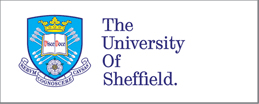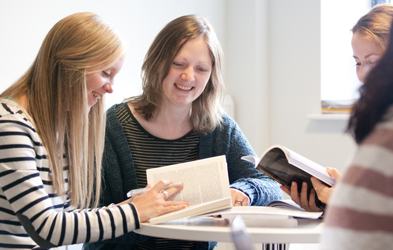We recognise that working in social work is demanding, particularly when you are at the start of your career. Supporting our newly qualified social workers through the Teaching Partnership’s Assessed and Supported Year in Employment Programme (ASYE) is how we provide a bridge from initial training to competent and confident practice based on a firm foundation of knowledge and skill.
Children’s Services
Newly qualified social workers across the partnership are mentored by a social work consultant or equivalent for the first twelve months and are supported to gain their fitness to practice certificate. Key features of the programme include a reduced caseload, monthly network meetings to meet with peers and receive additional training, two study days per month and regular developmental supervision. Work undertaken by the South Yorkshire Teaching Partnership ASYE moderation group means that we have been able to provide a more consistent approach across the partnership to our newly qualified workers. All our workers now undertake a baseline assessment of their knowledge, skill and experience upon arrival so that appropriately tailored professional development plans can be formulated to support individual learning needs. These are then reviewed and updated at formal reviews of progress at 3, 6, 9 and 12 month points on the programme. Workers experience three formal observations of their practice whilst on the ASYE. They are required to produce 4 critically reflective written pieces during the twelve months and also seek regular written feedback from professionals and families they work with. This, along with a record of training completed across the year, and formal assessment reports from their manager and mentor make up the ASYE portfolio. This is considered by individual local authority ASYE panels in order to achieve fitness to practice.
Being in the Teaching Partnership has also provided some excellent opportunities for newly qualified workers from across the partnership to come together to learn and develop. We offer a six days ‘Core Skills’ training course just for new workers. This training course is very immersive; it focuses on the use of self and learning about ways to better manage very demanding work environments. We have also had a number of themed research days where we have considered the voice of the child in assessments and effective reflection, among other topics. Feedback to consultants and mentors across the partnership indicates that our newly qualified workers find this additional layer of support whilst finding their feet in a new career invaluable.
As part of the Assessed and Supported Year in Employment newly qualified social workers within children’s social care also have the opportunity to gain academic credits for some of their work for the ASYE portfolio. Please see here for details of our accredited ASYE module
Adults’ services
Since January 2016, 15 ASYE’s have successfully completed their ASYE with a further 8 that are currently in progress. Social workers have consistently demonstrated proficiency in a wide range of tasks and roles and have particularly proven to be able to deal with more complex situations; developing respectful and situation appropriate professional relationships, thus building their own confidence and earning the confidence and respect of others. On completion of the ASYE, social workers have continued to consolidate practice experience and learning which they have then shared with their peers and has allowed them to contribute to the evaluation and development of their organisation. Indeed, at least six of the 15 have progressed to practice educating with others already considering progression and potential social work management. Overall, there has been significant development in terms of progress of the ASYE in adults with further development in the pipeline of a more standardised and consistent approach in the region (South Yorkshire)’

